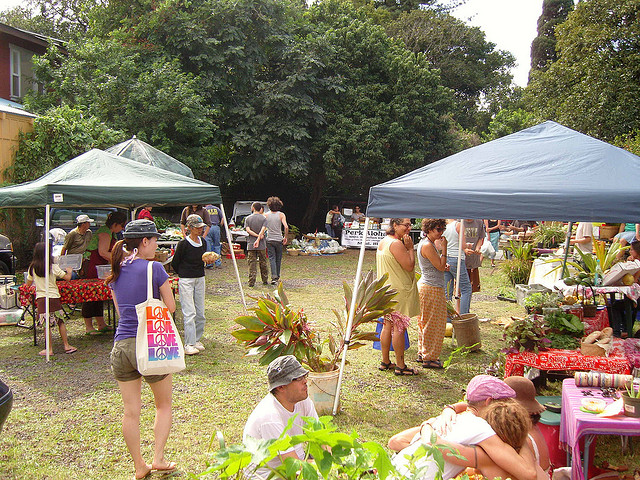“I’m a Vegan.” “I’m a fruitarian.” “ I’m a Pescatarian.” “I’m a superfoodarian.”
The world of food and the food we eat can be confusing. With nutritionists, food industries, animal welfare groups and environmentalists telling us stories of super foods and the moral horrors of numerous popular products, sitting down for a tasty yet guilt free meal can sometimes be difficult.
“These cashews have loads of protein in them, but have they been picked by malnourished children and women in India who are virtually paid nothing?”
“I really want something sweet for my porridge. I won’t buy white sugar that’s unhealthy and I’ll skip the organic honey because I feel bad about how many bee’s have been killed. Instead I’ll get the agave syrup from Mexico as it’s from a plant, Yes! Oh but wait, what about all the air miles?”
These are the tedious (and what some may regard as stupid) weekly struggles I go through on my supermarket shop and why my boyfriend detests going with me. I take too long, I read every sign and label and I spend most my time hovering in the bio aisle to see if the suspiciously cheap dark chocolate actually is fair-trade.
Yes I am one those foodie-types who loves reading labels and uses coconut oil for genuinely everything. I don’t make green smoothies and sprinkle Chia seeds on top, but if I had the chance and a good blender, I would like to. I really do love good food, and knowing that animals and the environment weren’t hurt in the process really does make me very happy!
Whether you love or detest all this food fashion, there is something we can all be and that’s a compassionate consumer.
So what is compassionate consumerism? Sound a bit too mindful and hippy? Well it;s not. It’s quite simply being a good human.
The definition of compassion is sympathetic pity and concern for the sufferings or misfortunes of others.
The Dalai Lama believes that all humans want is to be happy and the way we can do that is by showing more compassion.
“I believe that at every level of society—familial, tribal, national and international—the key to a happier and more successful world is the growth of compassion. We do not need to become religious, nor do we need to believe in an ideology. All that is necessary is for each of us to develop our good human qualities.” ~ Dalai Lama
As the Dalai Lama said we don’t need to worship goji berries or only eat boring lettuce for dinner. We can all have healthy affordable varied diets eating everything we like as long as we bear in mind the farmers, workers, the earth we live on and, of course, animals.
I think that’s only fair right?
Here are six easy steps to being a more compassionate consumer:
Reduce processed food: Processed food is not good for anyone. The amount of random chemicals you’ve never heard of can’t be great for you or your families’ health. Most processed foods normally contain palm oil and corn—two major environmental destroyers and also usually have animal products in them like eggs and milk that will have normally come from lower animal welfare situations.
Read labels: They can be really confusing, but just little things like looking if the food has been produced in your country goes along way to reducing carbon footprints and supporting the local economy.
Does it have fair-trade, or GMO free label on it? Does it have a long list of random chemicals you’ve never heard off? Maybe palm oil too? All good things to avoid. Low fat, farm fresh, fresh and healthy can all be completely meaningless adverting slogans!
Cut down on animal products: A lot of animals in our supermarkets have gone through a hell of a lot of suffering to get to our grocery stores. If we reduce our meat, egg and dairy intake by just a little bit, we will be reducing suffering by a lot. Meat and dairy production in intensive factory farms is causing bees to die, farmers to be out of jobs, water to be polluted and heart disease to rise.
Buying meat as a treat if you have to, and savouring it and eating every last bit like our grandparents did, is a more compassionate action.
Going veggie or vegan is great too!
Buy organic if possible: I know sometimes it can be more expensive, so it completely depends on different budgets. Realistically your whole shop won’t be all organic, but if you can get a few good key items like fruits, veggies, honey and chocolate, it’s a start.
Fair-trade and organic means, good for the farmer, no pesticides, no GMO, no chemicals and less harm to animals and more goodness for our bodies.
Avoid foods with lots of packaging—all this packaging takes up so many resources to make, then gets dumped in landfills or ends up in our garden or in the ocean. It directly damages the environment and a lot of the time it’s pointless and we pay more for it!
If we move away from processed foods, it’s inevitable we will have a bit less packaging but it can be difficult. If you see an item that has a cardboard container rather than a big plastic one then that’s a start.
Also recycling any plastic you have is super cool and compassionate.
Buy local produce: This supports local farmers, reduces long air-miles from other countries, makes us more self- sufficient and food stable as a country. If there is a local food market near you, go and check it out. The stalls are smaller more colourful and personal! It’s so nice to know that I’ve bought my potatoes from the smiley man that grows them down the road and that I’m giving the money straight to him for all his hard work.
So good luck my compassionate consumers!
Relephant:
3 Big Reasons to Support Your Local Farmer’s Market.
~
Author: Michaela Wilkins
Editor: Travis May
Photo: Flickr/Too Tall Paul







Read 0 comments and reply